Essential nutrients are nutrients required for normal body functioning that cannot be synthesized by the body or cannot be synthesized in amounts adequate for good health and thus must be obtained from a dietary source.
Essential nutrients are also defined by the collective physiological evidence for their importance in the diet, as represented in, e.g., US government-approved tables for Dietary Reference Intake
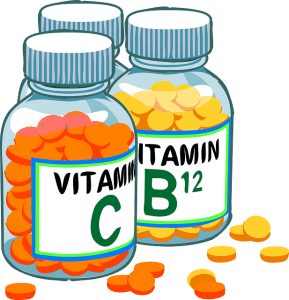
Essential Nutrients include Vitamins, Minerals, Essential Fatty Acids, and Amino Acids.
For example, most mammals synthesize their ascorbic acid ( vitamin C), which is not considered an essential nutrient for such species. It is, however, an essential nutrient for human beings, which requires external sources of ascorbic acid because humans don’t synthesize their own.

Not too many years ago, scurvy was recognized as a disease caused by severe vitamin C deficiency. It was common among sailors who didn’t have access to fruits and vegetables while out at sea. Sailors were getting sick and even dying, but it was years later the cause was discovered. This is an example of the significance of what can happen when a single nutrient is out of balance or missing from the diet.
A few essential nutrients may be toxic in large doses. Some can be taken in amounts larger than required in a typical diet, with no apparent ill effects.
Linus Pauling said of vitamin B3 (either niacin or niacinamide), “What astonished me was the very low toxicity of a substance with such great physiological power. A little pinch, 5 mg, every day, is enough to keep a person from dying of pellagra, but it is so lacking in toxicity that ten thousand times as much can [sometimes] be taken without harm.”
Linus Pauling was also a strong advocate for high-dose Vitamin C. In the 1970s, he stated that 2000 mg would be an optimal dose for vitamin C. Interestingly enough, the current RDA for Vitamin C is 75mg for women and 90 mg for men.

What are Non-Essential Nutrients?
Non Essential nutrients are nutrients that the human body can synthesize itself. Therefore, there has often been the assumption that the non-essential nutrients aren’t as essential to get in the diet. This also assumes that the body is in optimal health and that all the millions of processes work seamlessly. Non-essential nutrients can also become deficient, and it may be necessary to supplement if they are not readily available in the diet.
The Importance of Essential Nutrients
Amazingly, given enough calories, the human body can manufacture most of the thousands of chemical nutrients needed to sustain life. As we have established, several nutrients are not made by the body and are hence called essential. The essential nutrients are divided into six general categories: water, proteins, carbohydrates, fats, vitamins, and minerals. Adequate fiber intake is also essential for the normal functioning of the bowels and disease prevention. This article reviews the essential nutrients, their sources, and their role in health and disease..
Water is An Essential Nutrient
Approximately 60% of the adult human body is composed of water. Nearly all life-sustaining chemical reactions require an aqueous (watery) environment. Water also functions as the environment in which water-soluble food is absorbed in the intestines, and the waste products are eliminated in urine. Another vital role of water is to maintain body temperature through evaporation, as in sweating.
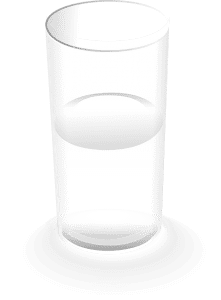
Severe dehydration will result in cardiovascular collapse and death. On the other hand, water toxicity (too much water) is also possible, resulting in the dilution of essential electrolytes (mineral salts) that may lead to erratic heart rhythm and death. The estimated water requirement of an average adult is two liters per day. More is required if exercising or in a hot environment.
Calorie Sources for the Human Body
There are three sources of caloric energy: Proteins, Carbohydrates, and Fats.
Proteins
Proteins make up the structural foundation of cells, tissues, and organs. As a source of calories, proteins provide four calories per gram. Proteins are made up of smaller building blocks called amino acids. Twenty amino acids make up all of the human proteins. The body can produce only 12 of these twenty amino acids, but eight must be incorporated into the diet. These amino acids are lysine, leucine, isoleucine, methionine, phenylalanine, threonine, tryptophan, and valine. In addition, two amino acids, histidine, and cysteine, are essential nutrients for newborn infants, and histidine may even be essential nutrients for adults. Any source of protein (meat, fish, poultry, cereals, or legumes) is sufficient to provide the body with the required amino acids. However, animal proteins are richer in essential amino acids than cereal or vegetable sources.
Protein deficiency is probably more prevalent than most people believe, even in developed countries. Severe protein deficiency, rare in developed countries.
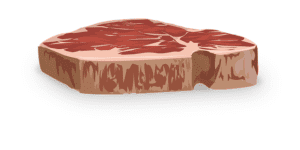
It results in growth retardation, anemia, body swelling in small children (a condition called Kwashiorkor), muscle wasting, and weakened immunity in adults. Protein toxicity (too much protein) results in the accumulation of waste products (nitrogen) harmful to the kidneys.Another thing to consider is the ability of the body to absorb protein. Certain foods can reduce the enzymes that break down protein and also stress. So it’s not just about eating protein. It’s also about breaking it down and absorbing the amino acids.
Carbohydrates
Carbohydrates are the primary source of calories for the majority of people. Carbohydrates also contain four Calories per gram. Strictly speaking, carbohydrates are not essential nutrients. The body is capable of making some carbohydrates. Still, there may be health issues if one never consumes carbohydrates and obtains calories strictly from proteins and fats.

Excess carbohydrates, however, also leads to obesity. Carbohydrates are widely available in typical diets, even in the poorest countries. Still, the preferred sources of carbohydrates are cereals (wheat, rye, corn, etc.), fruits, and vegetables, containing adequate fiber and other essential nutrients.
“Refined” carbohydrates like sugar and flour contain practically no fiber and very few other essential nutrients, but unfortunately, they comprise a large portion of Western diets.
There are no specified daily requirements for carbohydrates, but about 100 grams of carbohydrates should be enough to prevent the breakdown of the body’s stores of proteins and fats (for calorie needs).
A diet high in carbohydrates, particularly refined carbohydrates, has been implicated in many chronic diseases we see today.
A high-protein and high-fat diet with low carbs forms the basis of many weight-loss diets, including the ketogenic diet.

Fats
Fats provide energy for the body and are among the main components of healthy cells; they contain more than twice the number of calories (nine calories per gram) than proteins or carbohydrates. About 98% of dietary fats are composed of triglycerides that are, in turn, made up of fatty acids.
Three types of dietary fatty acids-
- Saturated
- Monounsaturated
- Polyunsaturated
Saturated fatty acids have been shown to increase “bad cholesterol” (LDL cholesterol) in some people.
Monounsaturated and polyunsaturated fatty acids have been shown to have the opposite effect.

Different foods contain different proportions of the above fatty acids. As a rule of thumb, animal products have an abundance of saturated fats, and vegetable oils are richer in the healthier mono- and polyunsaturates.
For example, butter contains nearly 70% saturated fatty acids, 30% monounsaturated, and very little polyunsaturates. Sunflower oil, on the other hand, contains almost 75% polyunsaturated fatty acids.
The human body can manufacture saturated and monounsaturated fats but not polyunsaturates. The daily requirement of polyunsaturated fats is minimal, and any source of fat-animal or vegetable, will provide it. However, consuming fatty foods and oils high in unsaturated and low-saturated fatty acids is important to protect the cardiovascular system from the ravages of bad (LDL) cholesterol.
Fats are also the primary energy source for your body’s cells. Fats are an essential component of cell membranes and are vitally important to the brain.
When deciding on what fats to bring into your diet, there are a few things to consider
Healthy Fats can be eaten by combining a variety of foods.
- Nuts,
- Eggs
- Avocado
- Olives
- Fish.
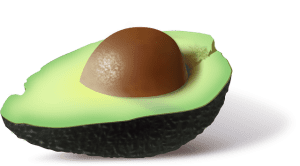
If you use oils in your diet, choose local, organic, and check for rancidity.
Fats can go rancid once extracted from the food source, so it is essential to buy good-quality oils. Olive oil is a great oil to include in the diet, and flaxseed oil can also be beneficial.
Omega 3 oils, if they are pure and filtered, are highly beneficial fats with many health benefits. As well as from fish, omega-3 oils can be found in algae oil which is a great vegan option.
Vitamins
Fourteen vitamins have been identified to play key roles in the metabolism of a healthy body. These vitamins include vitamins A, D, E, K, B1 (thiamine), B2 (riboflavin), B6 (pyridoxine), B12 (cyanocobalamin), vitamin C, biotin, folic acid, niacin, and pantothenic acid. With the rare exception of vitamin D, the human body is incapable of making vitamins, thus essential.
Vitamins function primarily as cofactors (helpers) in the body’s various metabolic (energy-producing) processes. Deficiencies and toxicity states of all vitamins have been characterized and well documented.
Vitamins are required in minimal amounts and can be obtained from various food sources. Your vitamin status will mainly rely on the food quality and your digestive tract’s efficiency in absorbing nutrients.
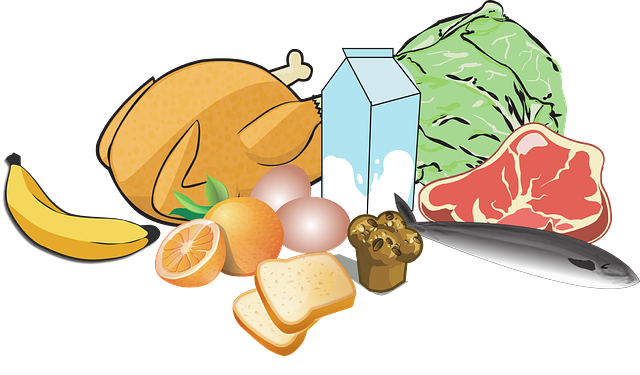
Minerals
Minerals are inorganic (not made by living things) substances that are essential nutrients for the proper functioning of the body.
Minerals are divided into two general categories: electrolytes and trace elements. Electrolytes must be consumed in relatively large quantities, but trace elements are needed in tiny amounts. Electrolytes are the more important minerals, including sodium, potassium, chloride, calcium, Magnesium, and phosphorous.
Sodium is the primary electrolyte of the blood and the fluid that bathes the tissues (extracellular fluid). Low blood sodium can result in confusion, seizures, erratic heart rhythm, and possibly death.
Potassium is the main electrolyte present inside the cells—potassium deficiency results in weakness, erratic heart rhythm, and death. Calcium and phosphorous are the main mineral components of human bones and teeth.

Calcium deficiency results in the thinning of the bones (osteoporosis), which results in fractures. The recommended daily calcium requirements are approximately 800 milligrams in children and 1000-1200 milligrams in adults.
Chloride is almost always associated with sodium (table salt is sodium chloride), and its deficiency is always related to sodium deficiency.
Magnesium deficiency is relatively standard, but only very severe deficiencies result in heart rhythm problems. Because Magnesium is involved in so many body processes, there are many symptoms you may be experiencing as a result.
These include
- Cramp
- Insomnia
- Restless legs
- Fatigue
- Twitchy muscles
- Constipation
Most electrolytes are widely abundant in nature; however, modern farming practices mean the soils can become depleted in these critical minerals. As well as that, the stress of modern society can tell the human requirement for nutrients may be getting higher.
The trace elements include
- iron
- zinc
- copper
- manganese
- fluoride
- iodide
- sulfur
- molybdenum
and some less-known trace minerals.
Iron is the most important of all trace elements because it is an essential nutrient in the structure of hemoglobin. This red blood cell molecule carries oxygen to the tissues. Iron deficiency-mainly from prolonged or extensive bleeding, such as in women with heavy periods-causes anemia.
Iodine deficiency can cause problems for the thyroid gland, and zinc deficiency can affect the immune system and blood sugar stability.
Most minerals and trace minerals are essential to the human body, but we are only learning what essential roles these minerals play.
Although good healthy food is the number one go-to to obtain these essential nutrients, it is often necessary to supplement when levels become too low and food is depleted.
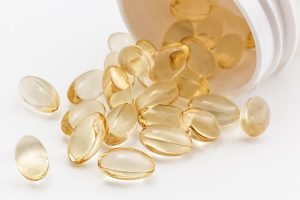
Although not absolutely an essential nutrient, fiber in the diet plays a crucial role in the proper functioning of the gastrointestinal system. Low or no dietary fiber may result in severe constipation and diverticular colon disease. Natural sources of these Essential Nutrients include fruits, vegetables, and cereals.
